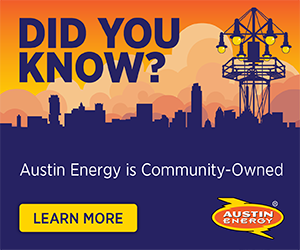Newsletter Signup
The Austin Monitor thanks its sponsors. Become one.
Most Popular Stories
- Former Council Member and dedicated environmentalist Jackie Goodman has died
- A multi-family rezoning at the rugged edge of Northwest Austin
- Texas lawmakers finalize bill limiting property owners’ right to protest new homes nearby
- As Acacia Cliffs rezoning is approved, Critics say Council has sold out on its affordability commitments
- City to postpone UNO vote to consult with UT
-
Discover News By District
Popular Whispers
Sorry. No data so far.
CAMPO Board holds off making a decision on future toll roads
Tuesday, April 13, 2010 by Kimberly Reeves
The CAMPO Transportation Policy Board slogged through the process of making a decision not to make a decision last night on proposed resolutions on toll roads within the CAMPO 2035 plan.
A subcommittee hashed out the majority of policies and resolutions over the course of eight hours of discussion. The group, however, could not resolve three significant issues: what to do with existing resolutions passed when the toll road network was approved; how to handle the greenhouse gas issue; and, to a lesser extent, whether cyclists like Council Member Chris Riley were happy with the bike/ped resolutions.
The board was split – roughly City of Austin-Travis County versus everyone else – on whether the toll road resolutions should be removed and it was only Council Member Sheryl Cole’s proxy for Mayor Lee Leffingwell that stopped either a deadlock or further discussion.
Representatives of the outlying counties were ready to discard the resolutions, possibly because of the fact that
The provisions of the toll road resolutions that the Central Texas Regional Mobility Authority argued against was that exact provision in the resolution that applied to all toll roads other than US 183A: toll road revenues should be used only to fund the costs incurred by and for the specific toll road project from which the revenue was derived. The intention was to make sure those who drove the toll roads would benefit from agreeing to pay for their future roadways.
San Marcos Mayor Susan Narvaiz, in particular, did not want the resolutions going out for public comment, even if the board took no position on the toll road resolutions. The Chair, Travis County Judge Sam Biscoe, argued that the policy board could have two two-hour discussions, or three, but it might go down smoother if the board simply devoted most of its meeting on May 10 to the toll road issue.
In questions of CTRMA Executive Director Mike Heiligenstein, Commissioner Sarah Eckhardt – who crafted many of the original compromises in the toll road resolutions – asked how provisions in state law or the CTRMA’s creation documents had not contemplated exceptions to system financing.
“I don’t have the answer,” Heiligenstein said.
Financing toll roads as a system – in which one project might provide leverage for the financing of others – is common in transportation, Heiligenstein said. Capital Metro’s Red Line, for instance, was contemplated and financed as part of a larger system, and the strength of financing for a future line would be contingent upon the system as a whole. The same could be sound for toll roads, Heiligenstein said.
“It’s very difficult for the market to absorb that kind of risk,” Heiligenstein said of project-by-project financing. “We will, however, work with this CAMPO board no matter what it wants to do.”
While CTRMA’s position paper argued that system financing provided more incentive to attract bond investors, Heiligenstein could not put a definition to just how much better off financing was, noting it was a subjective function of the market.
Cole suggested the presence of a bond lawyer to provide some concrete definitions for the board as to how system financing was perceived in the market. Biscoe immediately created a subcommittee to craft potential language on the toll road resolutions. Eckhardt protested she appeared to be outnumbered by members of the subcommittee who wanted to drop the language altogether–Williamson County Commissioner Cynthia Long, Cedar Park Mayor Bob Lemon, Cole and District Engineer Carlos Lopez – the group did appear to agree to dig into the topic.
Subcommittee meetings likely will include – once or more than once – the presence of bond and legal counsel for outside consultation.
As it now stands, a second public hearing on the CAMPO 2035 plan resolutions will be held on May 10, in a smaller room at the Convention Center. The Transportation Policy Board would take its final vote on May 24.
You're a community leader
And we’re honored you look to us for serious, in-depth news. You know a strong community needs local and dedicated watchdog reporting. We’re here for you and that won’t change. Now will you take the powerful next step and support our nonprofit news organization?





